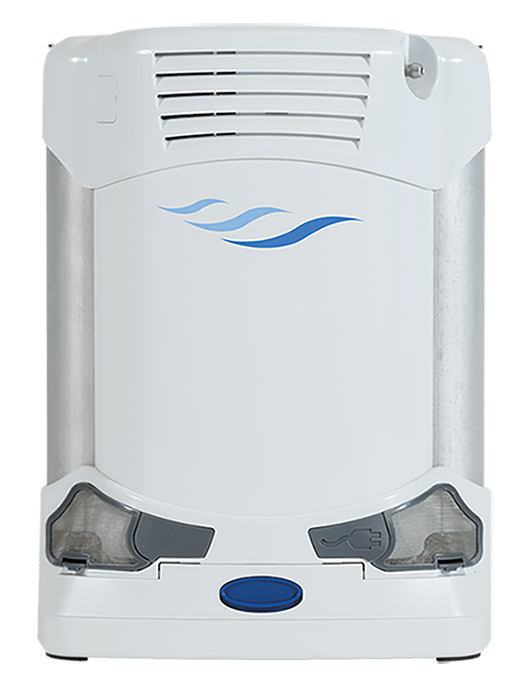
As your loved one ages, they might eventually need some help and support in their home. The right assistance can be a true life changer, boosting energy, reducing the risk of falls, and enhancing overall wellness and quality of life. How can you know when it’s time to research in-home companion care? While every senior and situation is unique, here are some signs that might indicate it’s time to find a local in-home caregiving agency to help your loved one.
Statements of loneliness or sadness
Older adults experience changes in late adulthood that can contribute to feelings of loneliness. For instance, a decrease in driving may result in less participation in social events and outings. They may see other people less often in general because they don’t run errands as much. A shrinking social circle can sadly also result from friends moving or even passing away. Companion care services are designed specifically to decrease feelings of loneliness and isolation, bringing a consistent and friendly face into the home to chat and make meaningful memories.
If your loved one expresses that they are lonely or sad or is saying so more often, in-home companion care can provide that additional socialization to decrease isolation. Current research demonstrates that isolated and lonely seniors are simply not as healthy as their social peers, with isolation linked to increased rates of dementia, heart disease, depression, and even early mortality.
Messy or unkempt home
If you notice a change in the upkeep of a loved one’s home, it could be a potential red flag that they are not succeeding at home without support. An unusually messy home is often the first clue that something is going on with the older adult’s health. Housekeeping tasks can become more difficult for older adults living with mobility challenges, increased pain, depression, and cognitive decline.
In-home caregiving agencies often offer light housekeeping during their visits, ensuring your loved one’s home will be tidied, swept, and cleaned. In addition, your loved one might have more energy to pursue other interests if they don’t have to worry about throwing a load of laundry in the washer or vacuuming the living room.
Recent weight loss
Unintended weight loss can point to a variety of potential illnesses or conditions. If you notice your loved one is getting thin, it could indicate they are not eating well on their own at home. Planning, shopping for, and preparing meals for one can be quite overwhelming for any senior, especially those who are living with cognitive decline, depression or anxiety, balance challenges, pain, or mobility issues. Sudden weight loss is your cue to follow up and discover if they are eating three meals per day and if those meals are nutritious.
Companion care can provide meal support services, including meal planning, making grocery lists, grocery shopping or ordering grocery delivery, and meal preparation. If the caregiver is in the home during meals, they will also sit down and eat with the senior, making the dining experience social as well.
Poor or declining personal hygiene
Have you noticed on recent visits that your loved one is wearing the same clothing over and over? Or perhaps you can tell they are not caring for their hair, teeth, and body. Poor hygiene can be a signal that something is going on; they might feel too tired to get up and shower each day, or they might be nervous to attempt to get dressed alone because they fear falling. Hygiene tasks can also seem overwhelming for anyone living with dementia.
Companion care offers support with personal care tasks and activities of daily living (ADLs). A caregiver can provide verbal cueing for showering, grooming, dressing, toileting, or incontinence management. If the caregiver notices that the senior needs help, they may be able to provide hands-on assistance with these tasks if they have the certification to do so. Having an extra set of helping hands can not only ensure your loved one is staying clean; it can also contribute to better skin integrity, enhanced energy to pursue other interests, and a decreased risk of falling.
Refusing invitations to social gatherings
If you notice your loved one no longer attends events or gatherings they once loved, it could be a sign that a little extra help at home would be beneficial. Aside from the physical, mental, and emotional health decline that can occur with isolation, refusing to attend family or friend gatherings can point to other potential concerns, such as decreased hearing or vision, early-stage memory loss, or new incontinence challenges.
A visiting caregiver can provide support and encouragement as your loved one attempts to get back in the swing of their social calendar. The caregiver can help get them ready and confident before the event, drive them to the event, and stay with them during the event as requested. Having that familiar face close by can boost self-esteem and confidence while enhancing safety.
A new diagnosis
Sometimes, a new diagnosis can provide some direction for the next steps of care, including enlisting the assistance offered by companion care. If your loved one has a new diagnosis such as dementia, a neurological condition, chronic pain, or diabetes, investing in companion care services can provide peace of mind to you and your loved one as you navigate a new normal.
Caregivers with in-home agencies can support a new diagnosis by providing transportation and escorting them to follow-up medical visits, preparing meals that meet a doctor’s prescribed diet, and being a stable presence in a time that might feel confusing or overwhelming.
Is companion care right for you?
In-home caregiving services can be beneficial for seniors living at home alone, even if they live with a partner or have the help of family members. The agency will perform a personalized assessment and develop a care plan that provides more structure and ensures the senior receives the support they need to meet their goals, staying as healthy and comfortable as possible. If you notice any of the signs mentioned above, or if your loved one just doesn’t seem like themself lately, it can be worth it to begin researching companion care.








